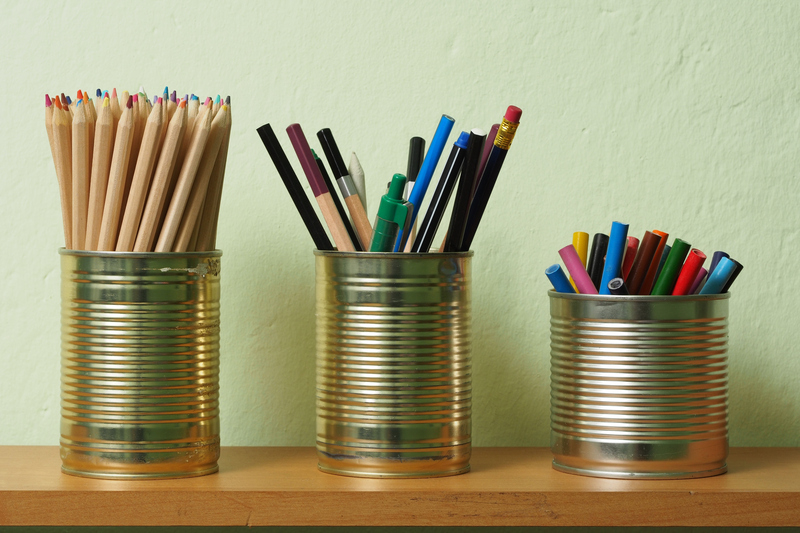How to Dispose of Bulky Waste Items Without Breaking the Bank
Disposing of large or bulky waste items can seem like a daunting--and potentially expensive--task. Whether you're clearing out a garage, remodeling your home, or just getting rid of old furniture and appliances, learning how to efficiently and affordably dispose of bulky waste items is essential. This comprehensive guide explores cost-effective methodologies for bulky item removal, ensuring you protect the environment and your wallet.

Understanding Bulky Waste: What Qualifies as Bulk Junk?
Before you can begin disposing of bulky waste items, it's important to understand which items fall into this category. Typically, municipalities define bulky waste as any item too large or heavy for regular trash collection--including, but not limited to:
- Sofas, couches, and recliners
- Mattresses and box springs
- Tables, desks, and cabinets
- Large appliances (refrigerators, washers, dryers)
- Carpets and rugs
- Yard waste (logs, branches, stumps)
- Bathroom fixtures or old toilets
- Non-hazardous construction debris
Identifying and sorting your bulky waste in advance will help when searching for affordable disposal solutions.
Why Bulky Waste Disposal Can Become Expensive
Unlike regular trash, large waste item disposal often requires special handling. This is because:
- They may not fit in standard collection bins.
- Municipal trash collectors usually impose additional fees for bulk pickups.
- Transporting large objects often needs a truck or van, which might require renting or hiring.
- Some materials need extra processing or fees at landfills and recycling centers.
Understanding these challenges can help you make more budget-friendly decisions when planning your disposal efforts.
Budget-Friendly Options for Disposing of Bulky Waste
How to dispose of bulky items affordably? Fortunately, there are many cost-effective and even free solutions. Below, we break down publicly available and creative strategies:
1. Leverage Municipal Bulk Collection Days
- Check with your local government for scheduled bulk pickup days. Many cities offer residents a set number of free or low-cost pickups annually.
- How to take advantage: Place your large items curbside during these designated dates to save on collection fees.
- *Tip*: Always check size, quantity, and material restrictions in advance. Some municipalities require you to schedule pickups in advance, so planning is essential.
2. Use Drop-Off Facilities
- Some towns maintain recycling drop-off centers that accept furniture and appliances.
- These facilities typically charge a modest fee (often much less than hiring a hauler).
- Special drop-off events, such as e-waste or appliance recycling days, may provide free disposal opportunities.
- *Tip*: Always confirm what materials are accepted and the associated (if any) costs.
3. Donate or Give Away Items
- Charitable organizations, like Goodwill, Habitat for Humanity, or local shelters, often accept gently used furniture, appliances, or building materials.
- You can also use platforms like Craigslist, Facebook Marketplace, Freecycle, and Buy Nothing Groups to list bulky items for free pickup.
- Not only is this option free, but it also promotes reuse and benefits your community.
- *Underline*: Some charities even offer free pickup services for large donations!
4. Sell Used Items
- For items in decent condition, try selling them via online marketplaces.
- Price items affordably to ensure a quick sale--this way, your bulky waste disposal turns into a little extra cash.
- Arrange for "buyer pickup" to avoid transport costs.
- *Pro tip*: Be honest about the item's condition to avoid wasted time and curbside surprises.
5. Recycle Where Possible
- Many communities offer recycling programs for specific large items such as mattresses, appliances, or electronics.
- Some appliance manufacturers or retailers offer "haul away" services when you purchase a new item, sometimes at little or no extra cost.
- Metal recycling facilities often accept old metal furniture, grills, or appliances for free, or you may even receive a small payment for valuable scrap metal.
- Always remove hazardous components (e.g., refrigerant in fridges) before recycling!
6. Team Up with Neighbors
- If your block has several residents needing disposal, consider pooling resources to rent a dumpster or hire a junk hauler.
- Sharing costs for collection or renting equipment makes budget bulky waste removal more attainable.
- Organize a neighborhood "bulk trash day" to coordinate efforts and possibly negotiate group discounts with haulers.
7. Schedule a Hauling Service Only as a Last Resort
- If you must use a professional junk removal service, compare several providers for the best deal.
- Look for companies that charge by volume, not weight, for potentially lower rates.
- Bundle all your items together for one pickup rather than multiple trips.
- Be sure to vet online reviews and ensure the company properly recycles or donates where possible.
Creative, Low-Cost Alternatives for Large Waste Items
Repurpose for Personal Use
- Turn an old dresser into garage storage or a repurposed bathroom vanity.
- Use scrap wood furniture or bed frames for DIY projects or firewood.
- A bathtub or barrel could make an excellent planter or garden feature.
- *Think outside the box*--upcycling ideas abound on social media sites like Pinterest or Instagram!
Repurposing isn't just economical--it's also sustainable and creative!
Host a Community Swap Event
- Organize a garage sale or community "swap meet."
- Invite friends and neighbors to exchange unwanted bulky items.
- This can be a fun, social, and eco-conscious way to see old items find new homes, reducing the load heading to landfill!
Contact Local Theaters, Schools, or Artists
- Theatrical groups or schools may have a need for materials, props, or furniture.
- Artists may want parts for creative projects.
- Connecting with local creative organizations can make bulky waste disposal both free and rewarding.
Key Considerations to Reduce Bulky Waste Disposal Costs
Sort, Disassemble, and Prepare in Advance
- Take apart large furniture--removing legs or breaking down components can make transport easier and cheaper.
- Sort items into recyclable, reusable, and true waste categories before disposal.
- Remove hazardous or restricted items (paint, batteries, chemicals), as these often require special handling.
Follow Local Rules and Guidelines
- Every city or town has different rules for large waste item collection (e.g., what items are accepted, limits per household, etc.).
- Improperly disposing of bulky waste can incur fines or rejected pickups.
- Contact your local waste authority or visit their website for specific instructions.
Prioritize Environmentally-Friendly Disposal
- Opt for recycling, reuse, or donation whenever possible over landfill disposal.
- Improper or illegal dumping is not only unsightly but can lead to environmental damage and significant fines.
Tip: If you choose a junk hauler, ask if they recycle materials and what percentage gets diverted from landfills. This foresight makes you an eco-friendly community member.

Frequently Asked Questions About Bulky Waste Disposal
How often can I schedule bulk trash pickup?
Most municipalities offer 1-4 free or low-cost pickups per year; refer to your local waste service provider for specifics.
What items cannot be disposed of with regular bulky waste?
Hazardous materials (paint, asbestos, oils), tires, car parts, batteries, and some electronics must be disposed of through specialty programs.
Can I leave my bulky waste items at the curb at any time?
No. In most areas, curbside placement is allowed only on scheduled collection days (or by specific appointment). Unsanctioned dumping could result in fines.
Is renting a dumpster cost effective for bulky waste?
It depends. For whole-home cleanouts or multiple households, renting a dumpster can be budget-friendly if costs are shared. For a few bulky items, explore cheaper alternatives first.
Conclusion: Affordable Bulky Waste Disposal is Possible
With research, preparation, and a little creativity, disposing of large bulky waste items without breaking the bank is achievable for anyone. Take advantage of municipal services, recycling programs, donation centers, and creative reuse ideas. Always follow local regulations and embrace eco-friendly practices for disposal.
Remember: The best approach is to think ahead--don't let unused items pile up. The more proactive you are in seeking affordable alternatives for disposing of bulky waste, the more you'll save--both financially and environmentally.
Got an affordable bulky waste disposal solution you love? Share it with your neighbors or community--together, we can keep our spaces clean and green!
